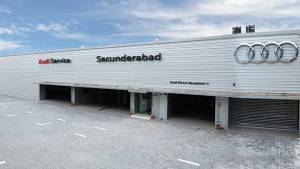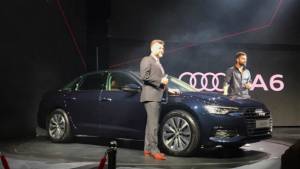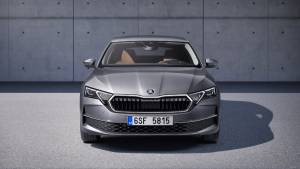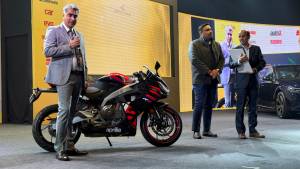Interview: Balbir Singh Dhillon, head of Audi India, on the Corona crisis, Strategy 2025, EVs and supercars
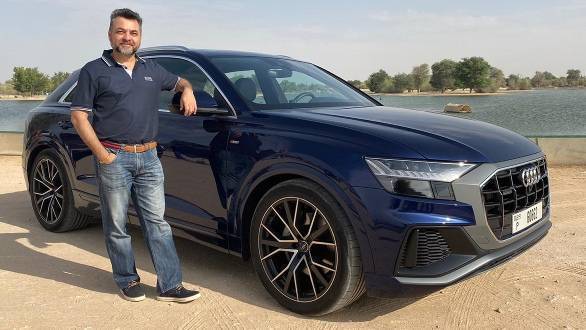
OVERDRIVE: With everyone facing the heat of coronavirus in so many ways, it appears the luxury brands remain the least affected in terms of sales. What have the numbers been like for Audi since the start of the year, extending into February and March?
Balbir Singh Dhillon: While we do not give a break-up of our sales data, Audi India began 2020 on a positive note with the launch of the Audi Q8 in January followed by the Audi A8 L in February. Both these products have been very well received by our customers. In addition, the Audi A6 has also seen steady demand. Setting perspective on the overall sales numbers; while we had anticipated a flat year in terms of sales â" the numbers for the overall luxury car market have declined in quarter one. While it is too early to see the full impact of COVID-19, the year forward looks rather challenging and we anticipate strong headwinds in next few quarters.

OD: How does the production shutdown in Europe affect India operations, and to what extent?
BSD: As you would understand, we are part of a global value chain; any impact on our supply chain will sooner or later impact our business. The situation that we are all currently facing is rather dynamic as none of us have seen something like this in our lifetimes. While we can say that there has been no major impact to us so far, we can't predict how the situation will unfold in the coming weeks/months.
OD: What kind of innovations could help in these times?
BSD: Business planning is key during such times. Our top priority is to minimise the impact on our customers, dealer partners, and teams. We are actively engaging at all levels so that we can support and sail through such challenging times. While we distance ourselves from each other during this lockdown, we are all in this together and will definitely emerge stronger. There is a combination of ways to deliver and sustain business during tough times and in the recovery phase:
-Â Frugal Business Approach
In times like this, one has to look inwards. It is very important in our business that we shed the burden that we can live without; here I am only talking about expenses, not people. A pragmatic approach is very important and one has to clearly distinguish between what is "a must" and the rest!
 - Strengthening the Business Ecosystem
A business is made up of multiple stakeholders including employees, business partners, and suppliers. It is important to strengthen the entire ecosystem and see that all stakeholders derive strength from each other and that you are able to support each other during these challenging times. All of us are interdependent on each other and this chain must be preserved.
- Effective use of resources:
Whether it is financial or human resources, it's time to increase the productivity of each asset at hand. In a new business world, the focus would be on the accomplishment of a task rather than a number of meetings or the hours logged in. Similarly, each financial resource must be put into its most effective use.
- Profitability and Liquidity:
At the end of the day, each business works for profitability. In difficult times like this, we clearly focus on profitability and liquidity of the entire ecosystem. We look at newer avenues to expand our reach and include allied businesses in our portfolio. This not only helps use our manpower more effectively but also generates additional revenue for the business. An effective example for us here is â" Audi: Approved Plus - our pre-owned car business.
- Digitalisation:
I firmly believe that in the connected world, most aspects of businesses have to go digital. While aspects like production do require a plant set-up and physical personnel, I feel that a large part of the office and retail work can and should go digital. Our strategic focus on digitalisation has held us in good stead in current times.
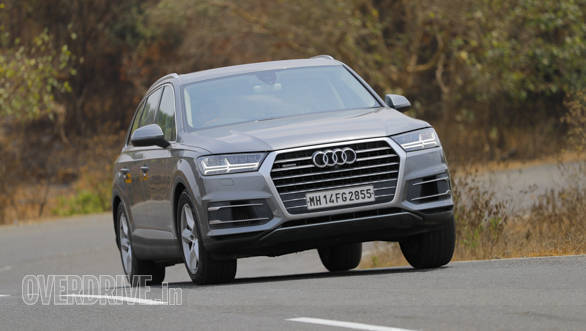
OD: We know that Audi India is currently moving to a petrol-only line-up. But could a case still be made for diesel engines, going by how VW India is also contemplating the 2-litre TDI for certain vehicles? If so, when could one expect a diesel return?
BSD: We started moving towards a higher mix of petrol engines during the latter half of 2017. We identified this trend early on and currently stand at a 60:40 diesel to petrol ratio from an earlier 90:10 split. We will only growth this further in the months and years to come. As a brand, we have a clear focus on delivering a great combination of efficiency and power.  With the launch of new Audi A6, we started our petrol strategy for the regulation of BS-VI models. We continued it with the launch of the Audi Q8 and the Audi A8 L. All these models come with a mild-hybrid technology. All our upcoming models in the year 2020 will also be launched with petrol engines only. For any strategy to show positive signs, it does take while. This being said, we have not given up on diesel engines entirely and are evaluating this further.
OD: While we're sure the virus has set back plans, what can we expect to see from Audi India in the coming months?
BSD: It is still early to gauge the full impact of the COVID-19 at this moment - our current plans remain, largely unaffected. Having said that, we may have tweak our existing strategies keeping in mind the dynamic nature of Covid-19. We have defined a clear strategy for Audi in India - we have termed it 'Strategy 2025'. As part of this strategy, we will focus on four key pillars; 1) Customer centricity 2) Products 3) Network 4) Digitilisation. Our product launch calendar for 2020 will include a mix of sports cars, SUVs and luxury sedans. We are bringing in BSVI compliant models, new technologies; introducing digital measures and other services that will further strengthen the Audi brand in India.
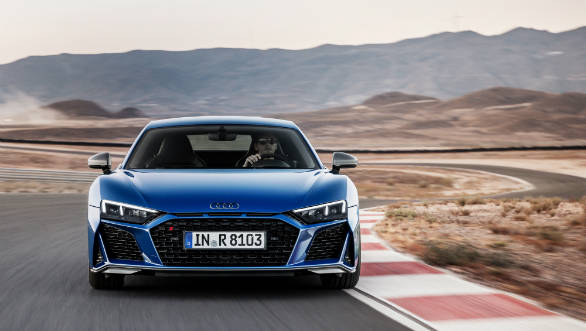
OD: Could we hope to see Audi India take advantage of the 2,500 unit homologation exception rule, with exciting halo products like the RS Q8, or even the new-gen R8? We're dying to see these in India, but could we expect them in 2020?
BSD: Absolutely! The Government's decision to allow brands to import 2,500 units under the homologation expectation rule will allow us to bring in products like these into the country. We are working on bringing this to India and will announce the launch timeline in due course. We are thankful to our Government for this initiative. While, this is a very small volume in the overall automotive industry, what it allows is to bring in new technologies, faster introduction of new models and sports cars into the country.
OD: Coming to the other end of the spectrum, does anything smaller than the A3/Q3 make sense for India? What are the plans for the Q2?
BSD: We evaluate all options from our Global portfolio â" however, there has to be a strong business case with a potential for good volumes. Our experience tells us that entry model luxury cars is a very competitive segment; while it does bring in volume, it is most difficult to sustain. As a brand, we can't compromise on the price positioning when we provide great quality products that are also technology rich. Having said that, you will hear from us in the months ahead on our plans for these upcoming product launches.
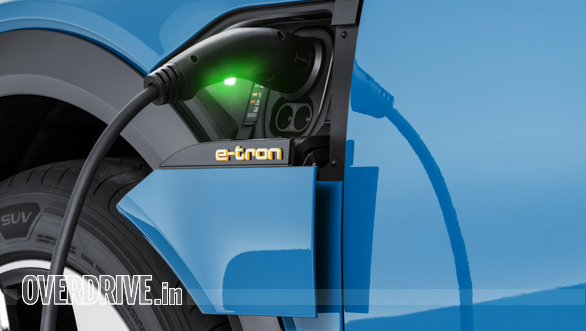
OD: With the e-Tron set to come into the country, how will Audi approach beefing up the EV charging infrastructure?
BSD: EVs are the way forward but the market is not going to develop overnight. Infrastructure plays an important role. Tangible measures by the government towards e-mobility infrastructure and adequate support towards the import of electric vehicles would be a welcome move. Having said that, we are readying ourselves for this big initiative and preparing ourselves to manage this new technology. In addition we are studying the current work being done by private players in EV infrastructure development and will devise our strategy accordingly for India. We are working towards setting things in place and will be offering home / office charging solutions for the Audi e-tron, as and when we decide to launch the model.
Starts Rs 54.42 Lakhs
1984cc
Automatic
245
370
14.11 Kmpl
Starts Rs 99.99 Lakhs
-NA-
Automatic
413
664
-NA-
Starts Rs 1.34 Crore
2995cc
Automatic
340
500
-NA-

